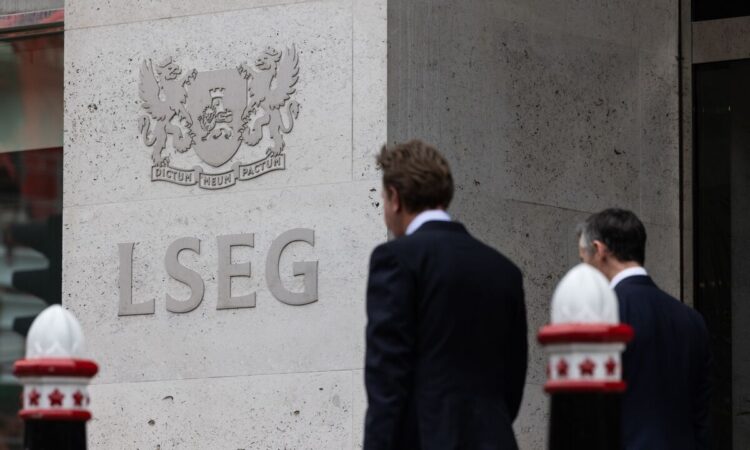
Nearly four years after Brexit, London still dominates an essential corner of Europe’s financial markets: acting as the guarantor for hundreds of trillions of dollars in derivatives trades. For its own sake, the European Union should stop trying to take that business away.
Known as clearing, the business entails standing between trades and collecting collateral, so that market participants needn’t worry about one another’s creditworthiness. Trading activity naturally gravitates toward a single hub, which maximizes liquidity and conserves collateral by consolidating participants’ positions. The London Stock Exchange’s LCH Clearnet, for example, has long provided the main hub for the vast market in interest-rate derivatives, which are used to hedge against rate swings or to convert floating-rate into fixed-rate debt (and vice versa). Its market share has consistently exceeded 90%, including for euro-denominated trades.
Although this system has worked perfectly well post-Brexit, the EU keeps trying to grab a piece of the action. Its latest effort — part of proposed legislation known as European Market Infrastructure Regulation 3.0 — would resort to brute force, requiring a portion of all euro-denominated trades to be cleared through EU-based central counterparties and penalizing “excessive” exposure to non-EU clearinghouses.
The stated aim is to enhance financial stability, by moving euro clearing within the jurisdiction of EU regulators. But breaking a piece off the London hub would actually have the opposite effect. Using more than one central counterparty would, for example, increase collateral demands, making severe cash crunches more likely in volatile times. Beyond that, it would render trading more expensive, undermining the competitiveness and profitability of EU banks, insurers and pension funds — which explains why they’ve signed on to a letter urging officials to reconsider.
Yet what about Brexit? Can the EU really trust an independent UK to oversee such a crucial piece of the financial system? All available evidence suggests the answer is yes. The imperative of maintaining market access gives the UK every incentive to keep its regulations as closely aligned with EU requirements as possible. Its parliament recently adopted legislation to that end, empowering the Bank of England to write the necessary rules. If anything goes wrong, UK taxpayers will be the ones paying for the bailout. (The US, notably, has reached similar agreements with the UK.)
As tensions between the UK and EU ease, the two should seek to cooperate rather than rip markets apart. Their recent agreement to start a regular dialogue on financial regulation was progress. The next step should be for the EU to extend “equivalence” for UK clearing indefinitely. (The current arrangement expires in June 2025.) Doing so would grant market access as long as regulations remain largely aligned, thereby avoiding needless fragmentation while affirming a shared commitment to open markets and prudent rules.
Even in divorce, both sides should recognize what’s in their mutual interest.






